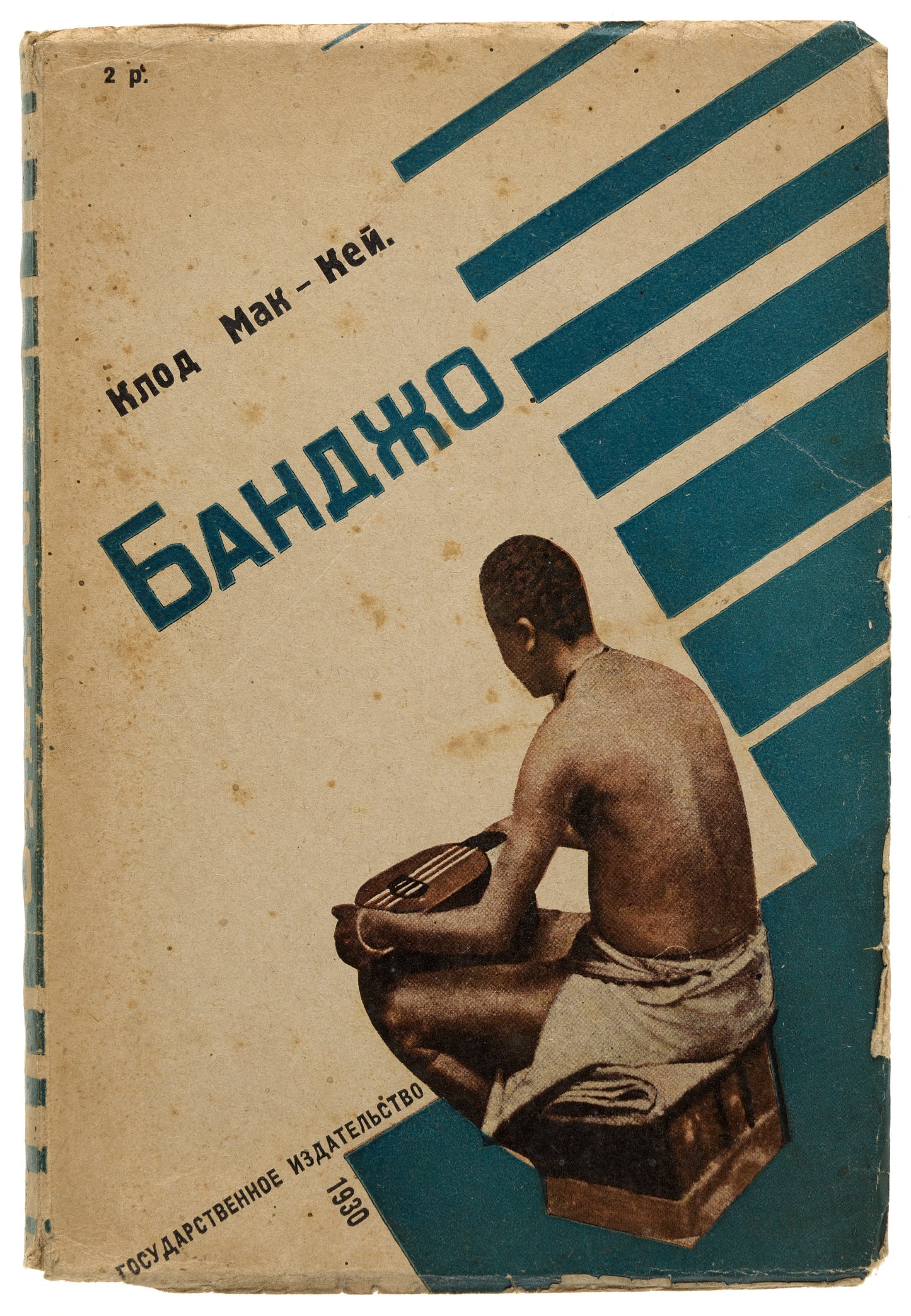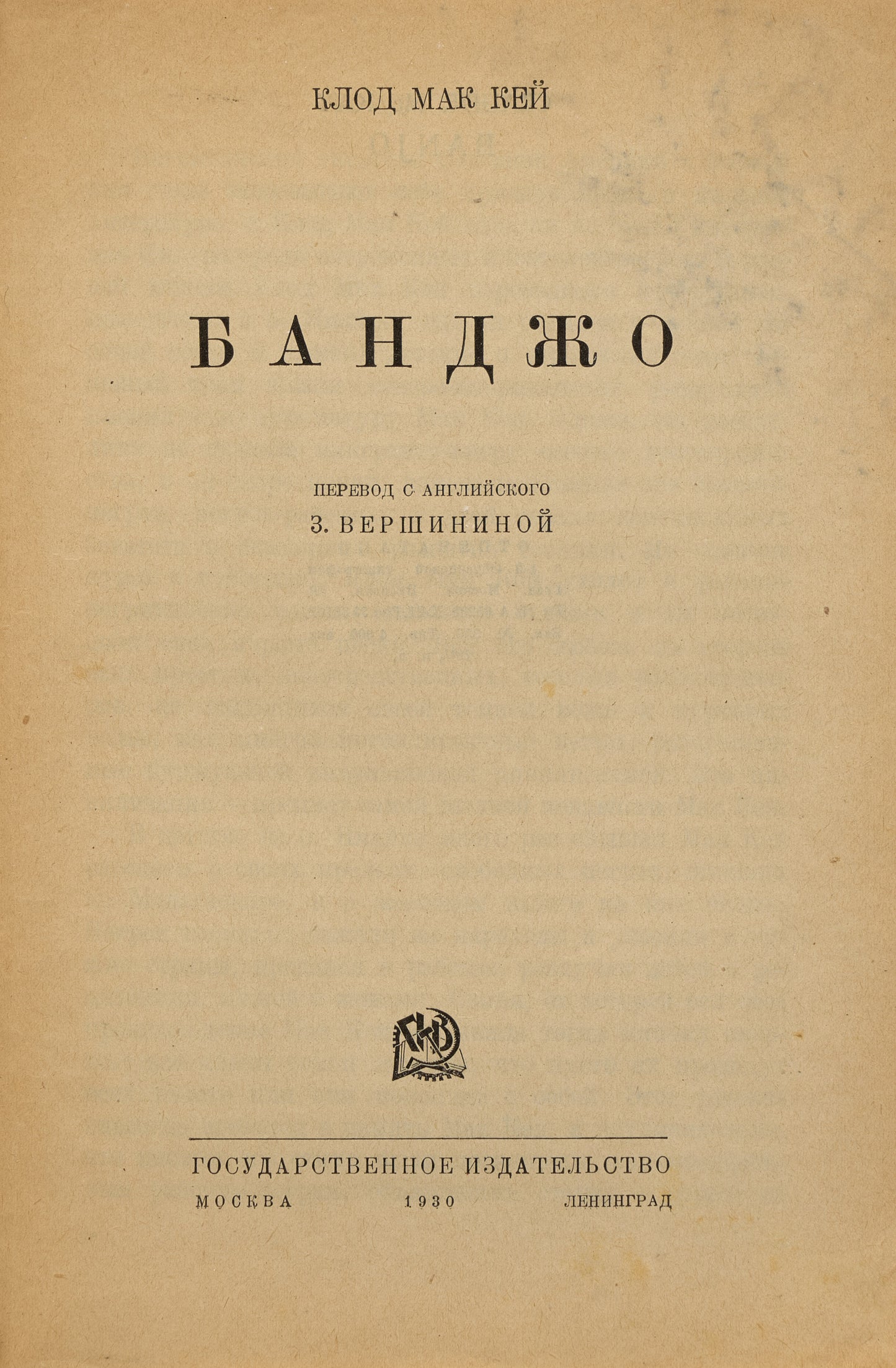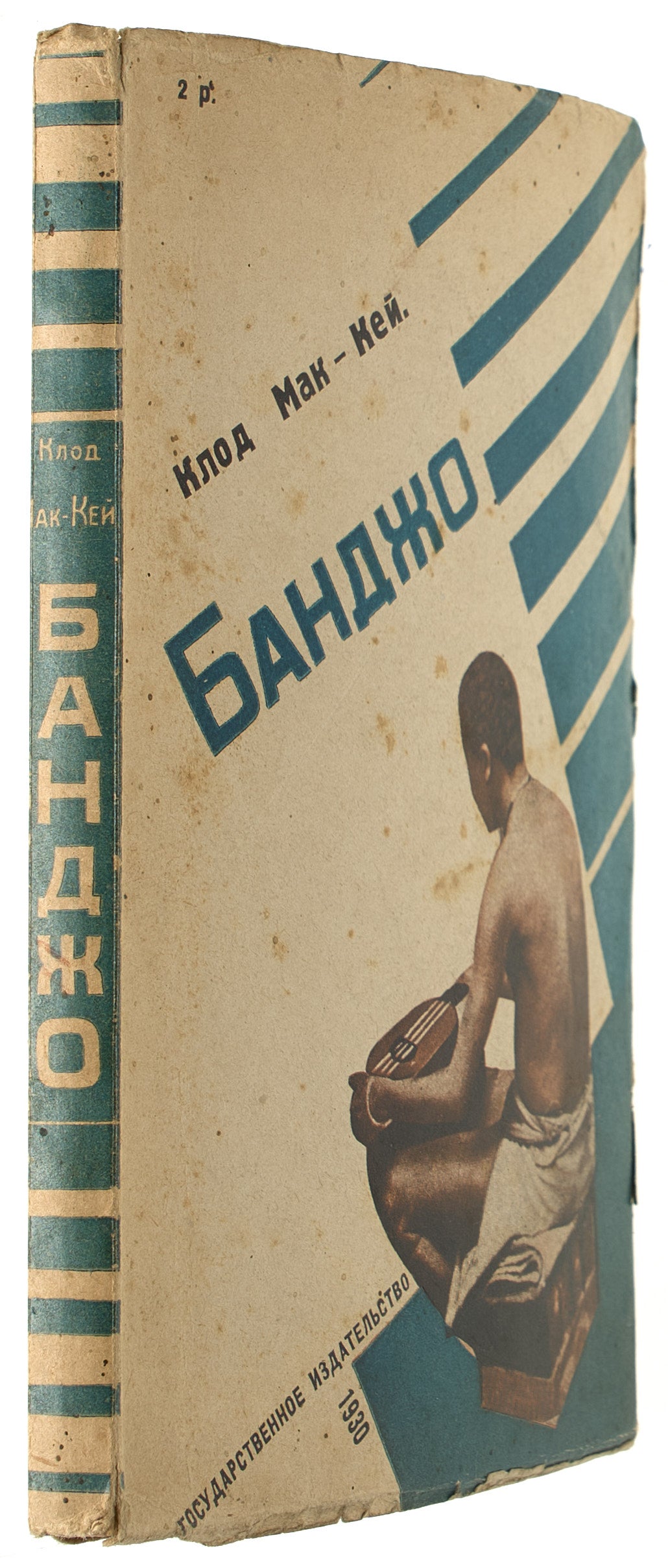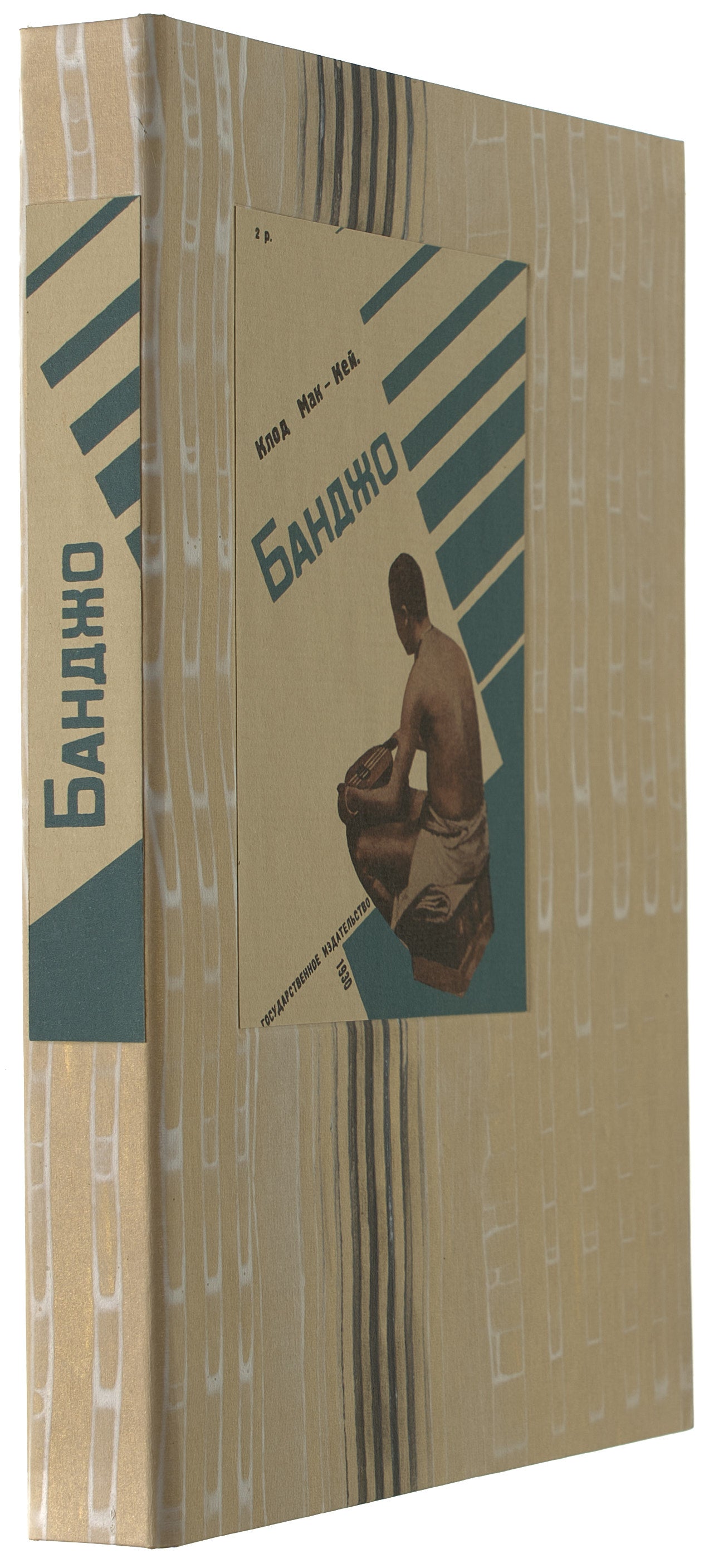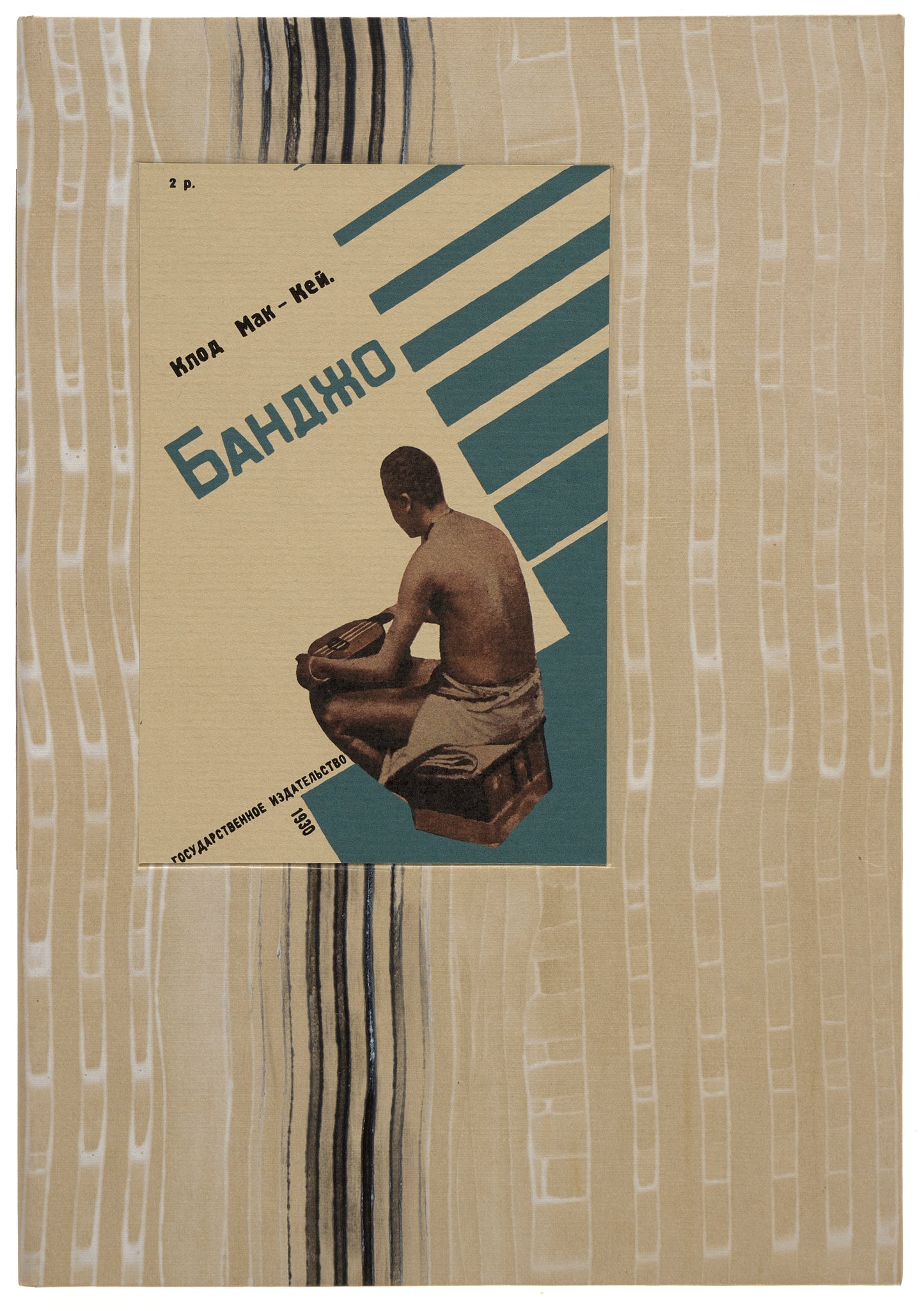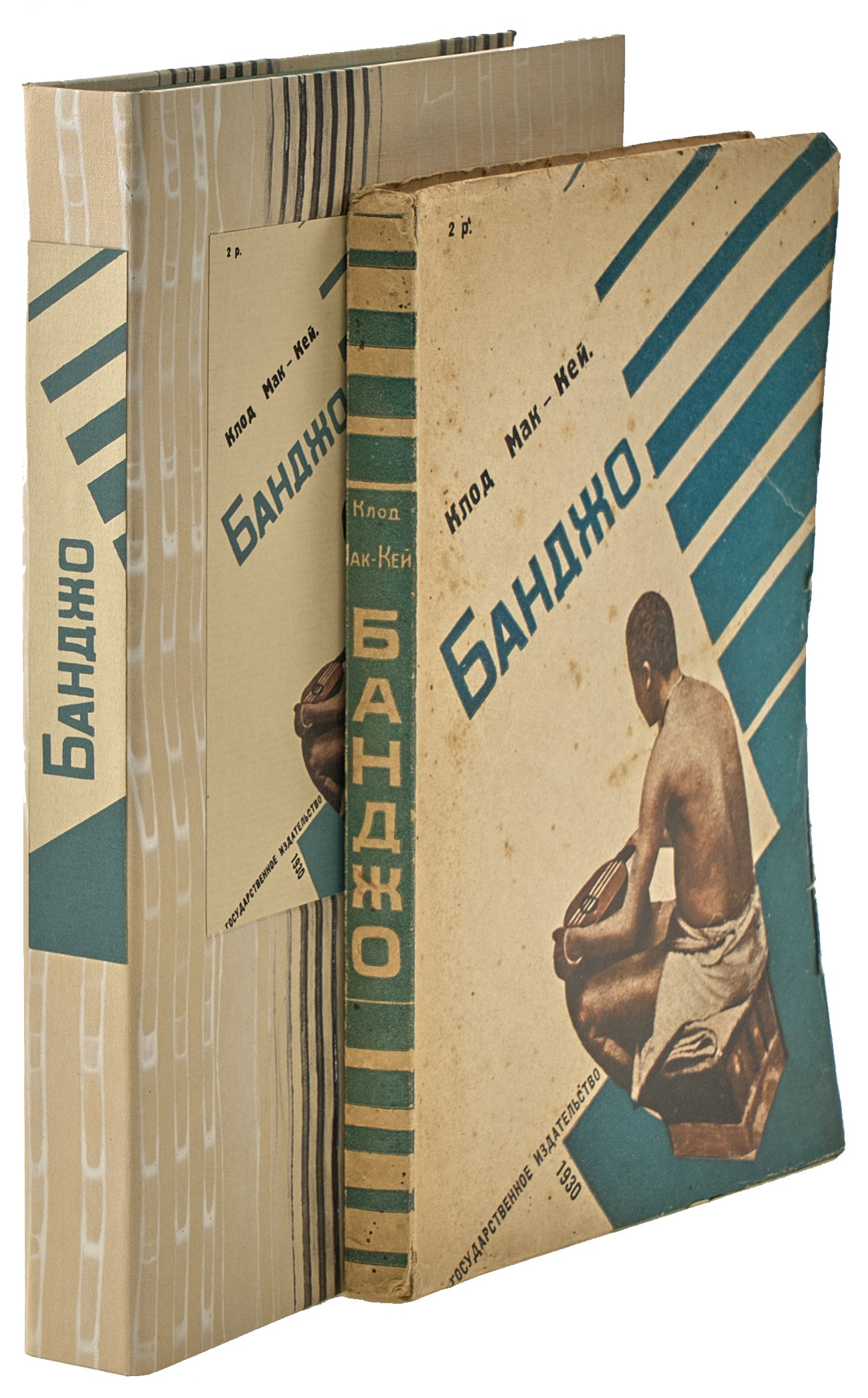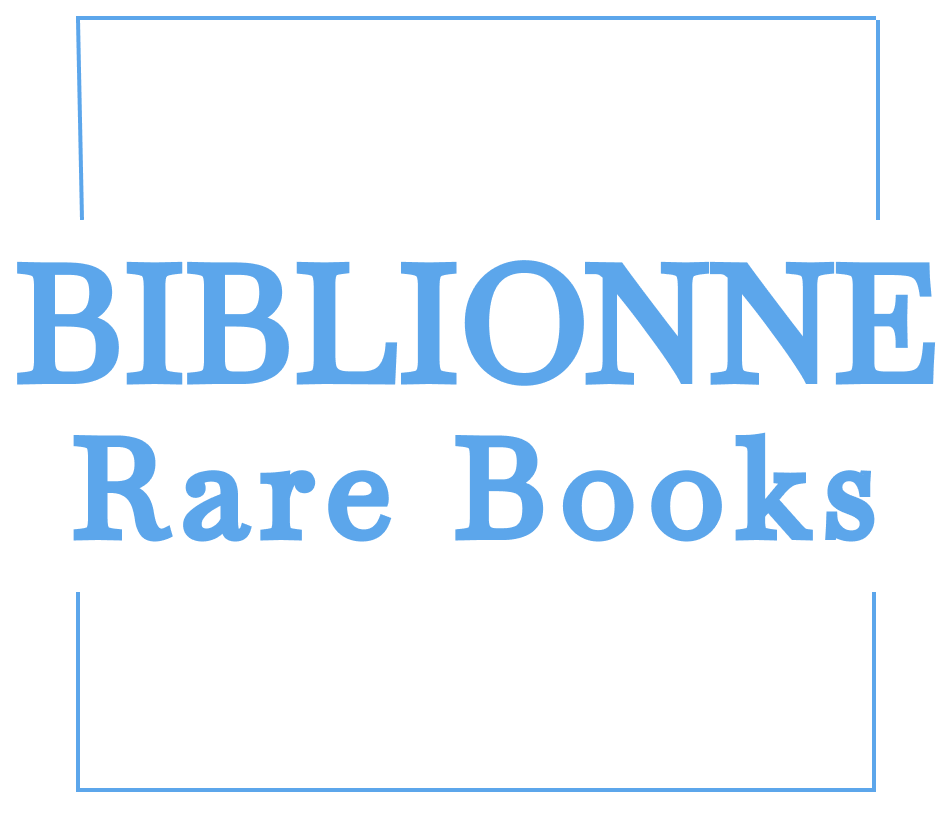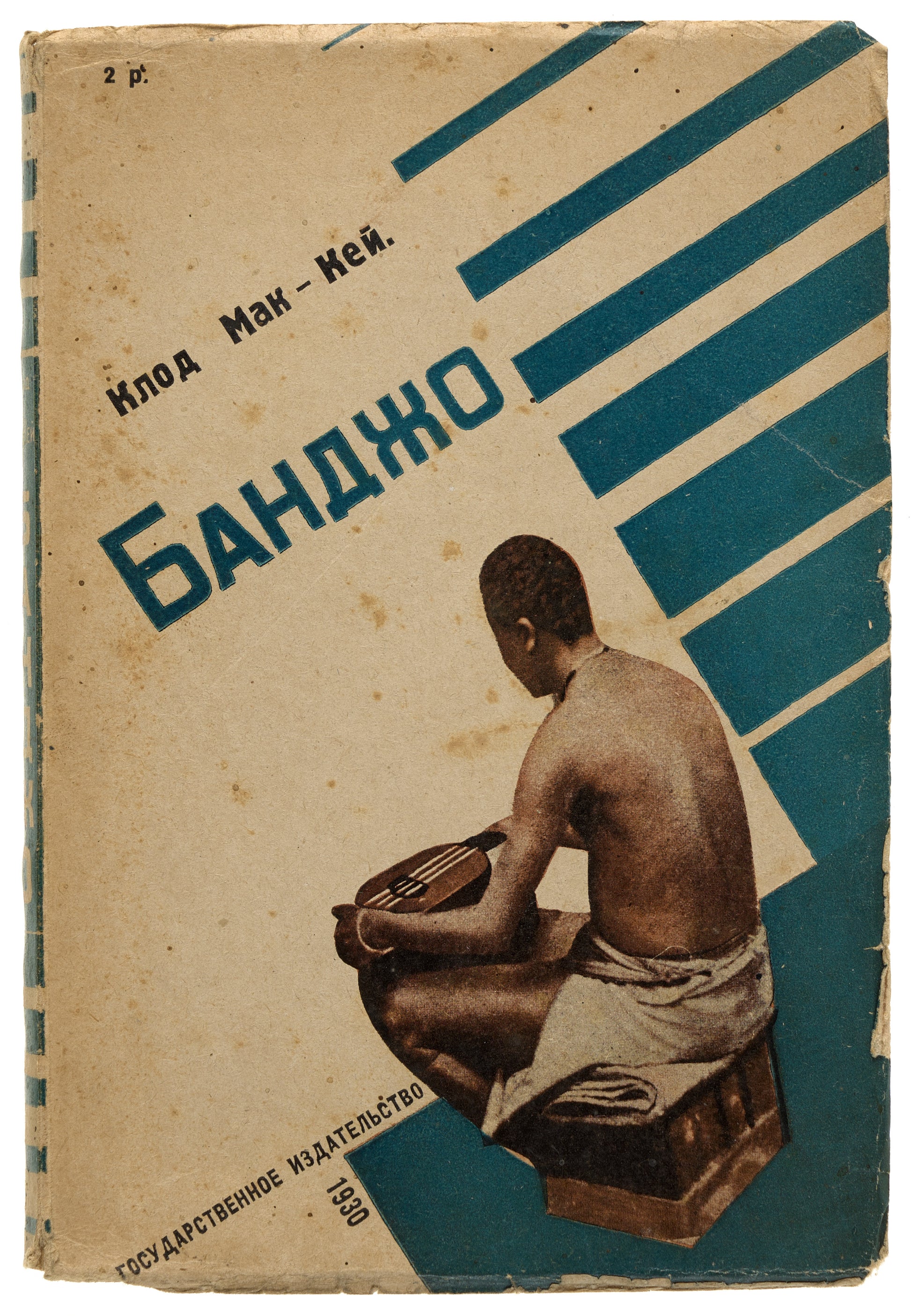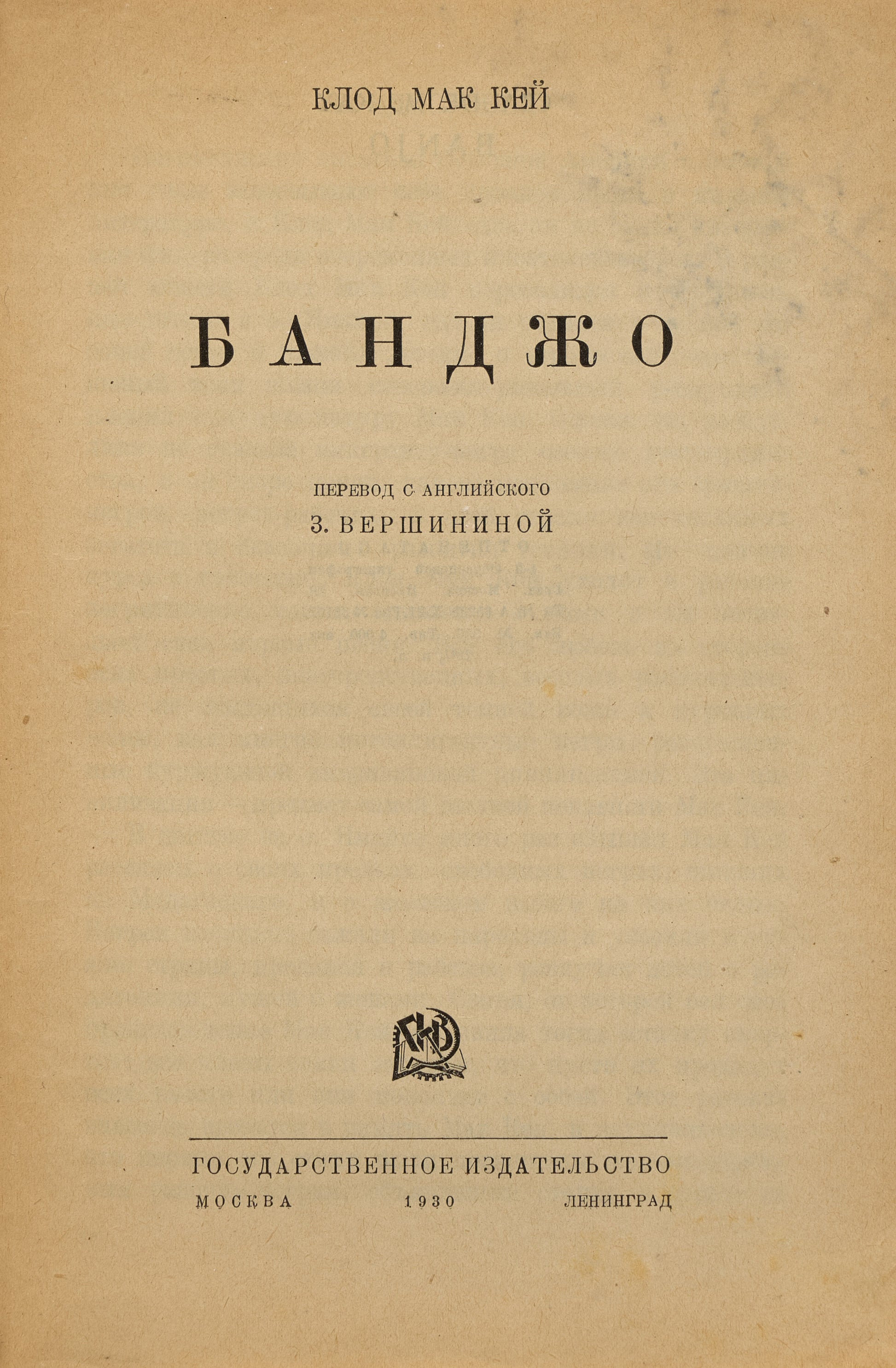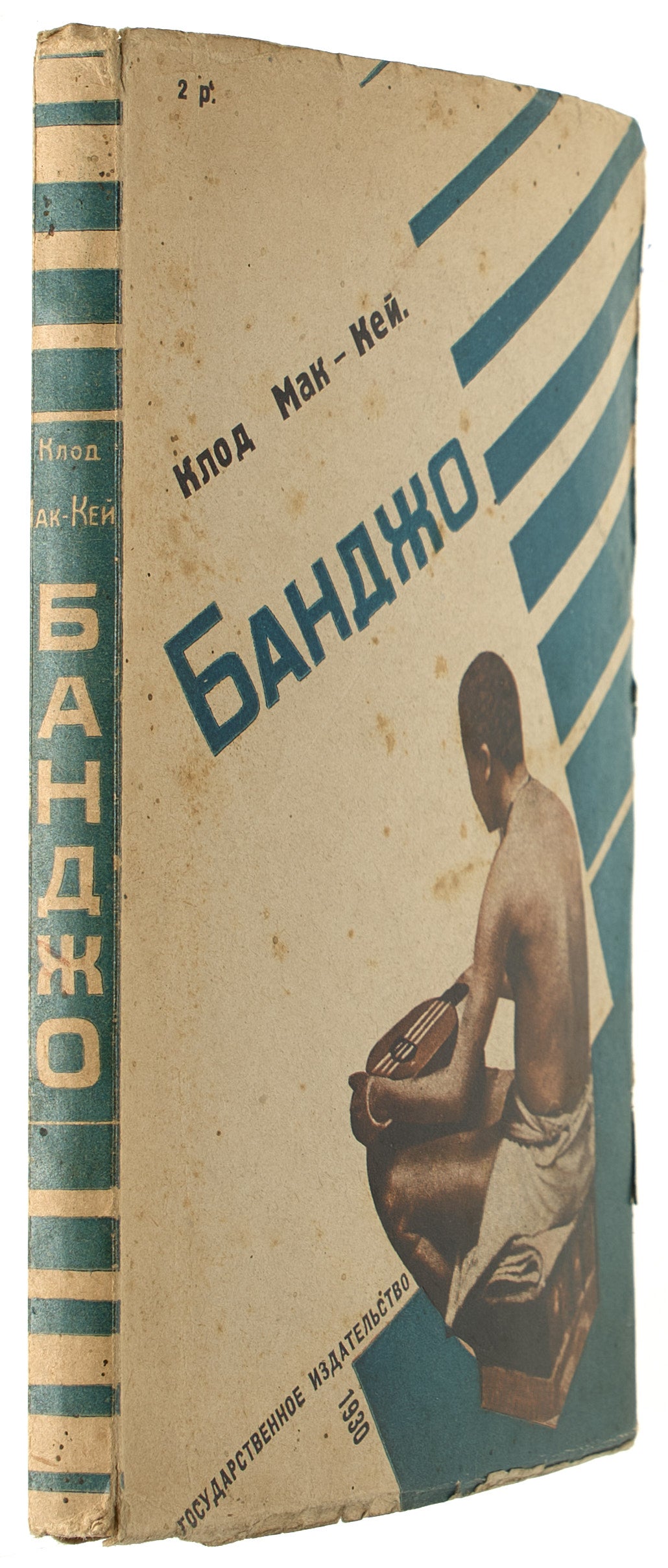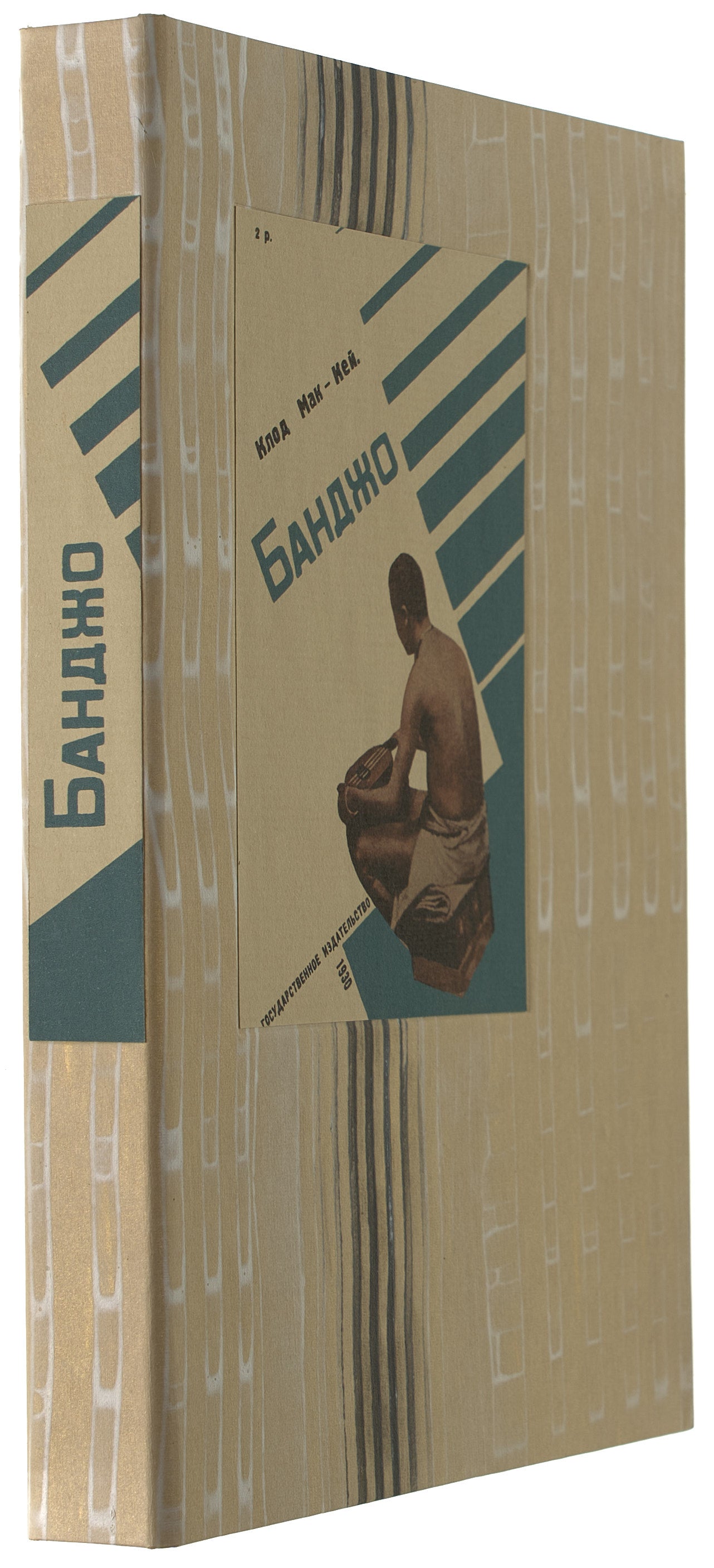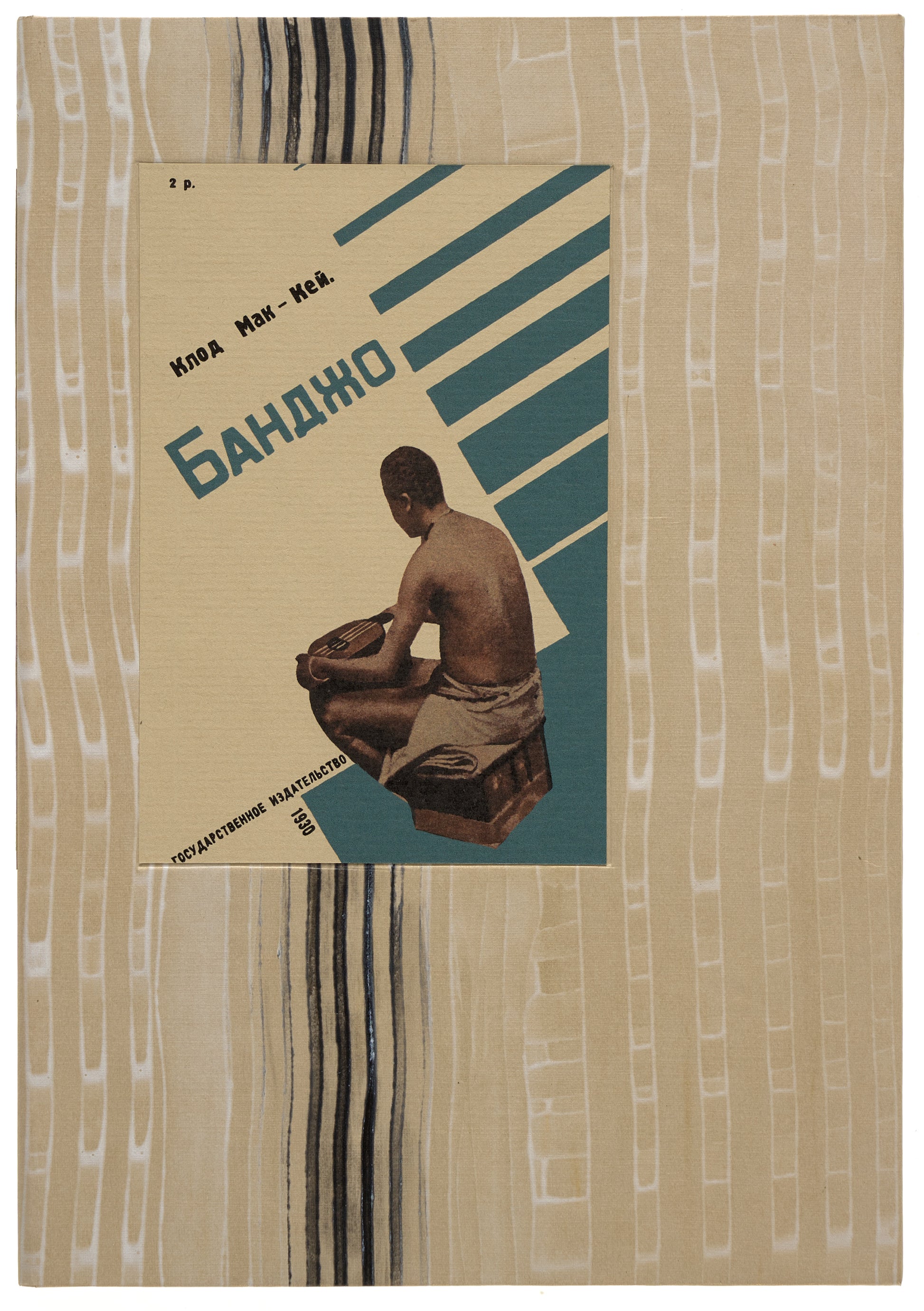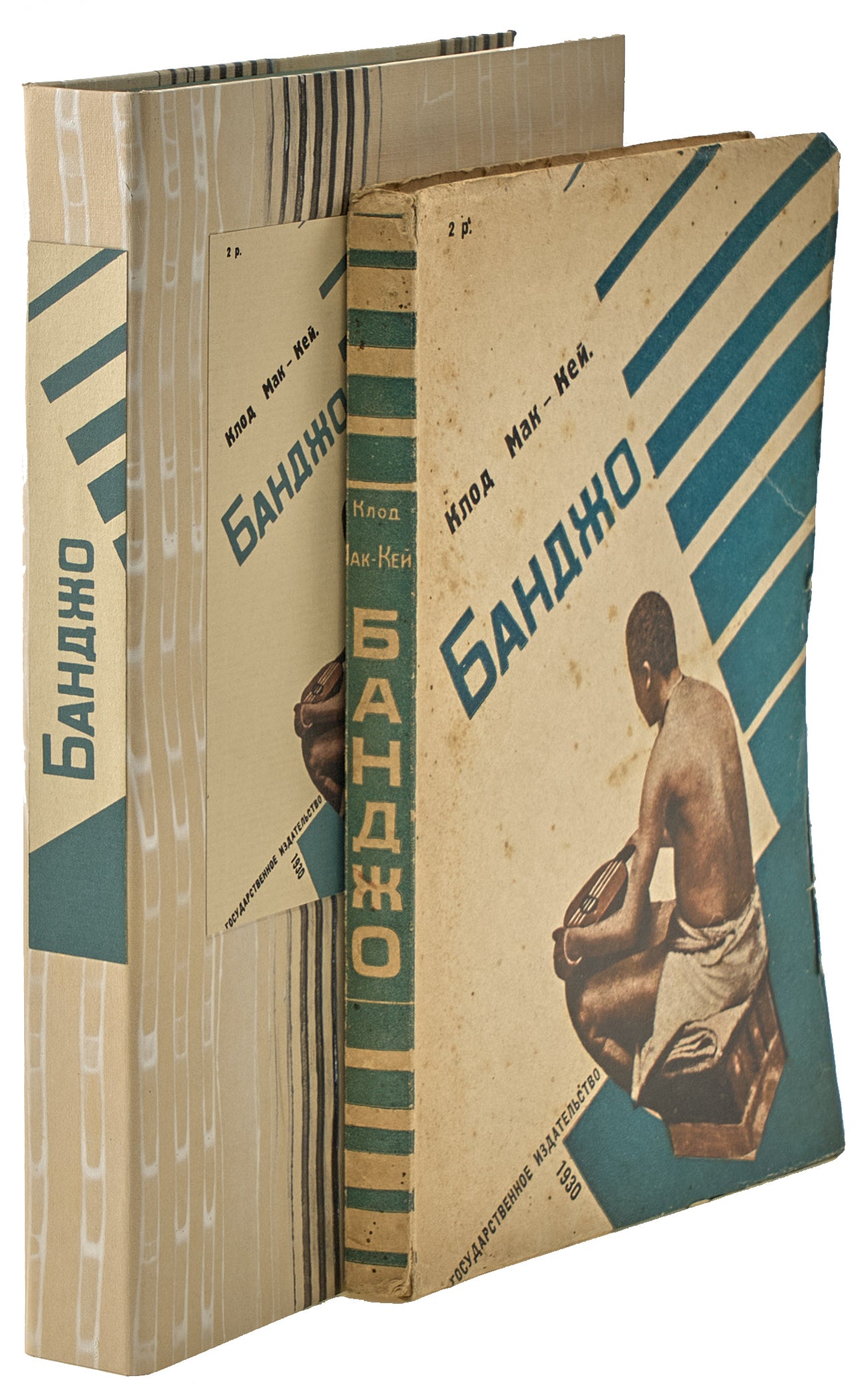McKay, Claude
Banjo. The Harlem Renaissance in Russian.
Banjo. The Harlem Renaissance in Russian.
Couldn't load pickup availability
McKay, Claude [Banjo]. Bandzho.
Translation from English by Z. Vershinina.
Moskva-Leningrad, Gosudarstennoe izdatelstvo, 1930.
8vo, 325, [2] pp.
In original pictorial wrappers with photomontage and modern clamshell box.
Near very good condition, short tears around wrapper edges, wrappers somewhat foxed, deleted ownership signatures to front cover verso, trace of bookstore label to back cover verso.
The first Russian translation of McKay’s second novel. Rare, especially in this condition. One of 4 000 copies published.
During the period of fascination with communism and the Soviet social experiment, Claude McKay(1890–1948), a Jamaican-American writer, poet, and key figure of the Harlem Renaissance, visited the USSR from 1922 to 1923. He became the first African-American writer with whom the Soviets sought to establish a connection, making him the 'flagship' of the oppressed African-American people. During this trip McKay participated in the 4th World Congress of the Communist International and met with prominent figures such as Leon Trotsky, Grigory Zinoviev, and Nikolai Bukharin. Moreover, McKay collaborated with the prominent translator Petr Okhrimenko to produce two books which were published in Russian, ‘The Negroes of America’ (1923, inspired by Trotsky) and ‘Trial By Lynching’ (1925). Back-translations into English were made only in the 1970s, and McKay's original English manuscripts seem to be lost. Realizing that he was being manipulated and used by the Bolsheviks McKay left for Western Europe.
According to the preface written by the novel's female translator Zinaida Vershinina (1873–1942), McKay was unable to return to the USA after his trip - 'the government of the democratic republic refused to allow him to re-enter the United States, deeming him an undesirable citizen'.
Moreover, in the preface, Vershinina provides a brief biography of McKay, highlighting his influences from Russian writers such as Tolstoy, Dostoevsky, Turgenev, and Gorky, and refers to him as 'one of the most interesting figures among contemporary writers' and a 'poet-rebel'. Unexpectedly, she also mentions Valery Bryusov, 'one of the leading poets of the USSR' (who was actually one of the principal figures of the Russian Symbolist movement), as a translator of McKay’s poetry.
Regarding the novel 'Banjo', Vershinina draws comparisons between McKay's characters and the tramps of early Gorky, but she also critiques them, noting that they are not fighters for a new future nor builders of a better society. This 1930 Russian translation of 'Banjo' became the last of McKay’s books to be published in Russia. In addition, by the beginning of World War II, he had become a staunch anti-communist.
Libman, # 3772.
We couldn’t trace any copy of this edition via OCLC.
